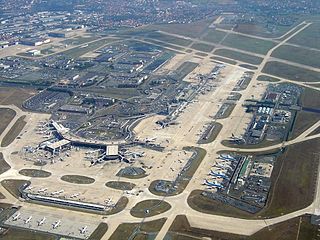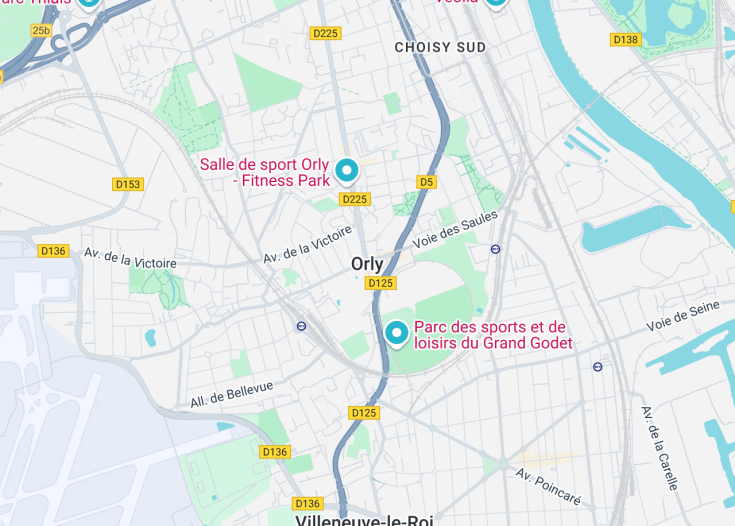Orly, situated in the southern suburbs of Paris, France, presents a fascinating blend of historical allure and modern convenience. Renowned primarily for hosting Paris-Orly Airport, one of the busiest hubs for international and domestic flights, the town offers more than just a transit point. Visitors can explore the rich cultural heritage evident in its local architecture and several small museums. Furthermore, Orly enjoys a strategic location that provides easy access to the heart of Paris and its numerous iconic landmarks. This proximity makes it an ideal location for those seeking to explore the Parisian lifestyle while staying away from the hustle of the city center.
When visiting Orly, consider using public transportation. The efficient networks provide swift access to Paris, allowing you to explore the capital city easily without the hassle of traffic or parking.
Plan your trip to coincide with local events in Orly to engage more deeply with the community and enjoy unique cultural experiences that are typically less crowded than those in central Paris.
Top things to do & see in Orly
Select the following sights and activities to discover best tickets and tours available in Orly.
Exploring Orly: A Gateway to French Charm
| Country | France |
| Time in Orly | GMT+1 |
| Language spoken | French |
| Population | 22,421 (INSEE 2023) |
| Currency | Euro (€, EUR) |
| Airports | Paris Orly Airport (4 mi / 6 km). |
Located just south of Paris, Orly is a compelling suburban area known primarily for its airport, Paris Orly Airport, which serves as a major hub for both domestic and international flights. This proximity to Paris gives Orly a unique advantage, making it an accessible point for explorers aiming to discover the Parisian metropolitan area and the broader Île-de-France region.
An integral part of the Val-de-Marne department, Orly’s history is deeply intertwined with the development of aviation in France. Originally a quiet village, Orly transformed significantly with the establishment of its airport in 1932. This development brought about economic growth and a population increase, shaping Orly into a bustling community.
Today, Orly spans approximately 6.69 square kilometers and offers a variety of amenities and recreational activities despite its small size. Its cultural richness is reflected in the diverse communities that call Orly home, contributing to a vibrant local life with numerous festivals and community events throughout the year.
Architecturally, Orly maintains a mix of traditional and modern French styles, with picturesque streets lined with quaint boulangeries and cafés juxtaposed against contemporary infrastructure developments. The town is also noted for its artistic contributions, hosting several local galleries and art installations which further enrich its cultural landscape.
Where is Orly?
Orly is nestled in the northern part of France, just 13 kilometers south of Paris.
Distances:
| Route | Distance by car | Time by car |
| Paris to Orly | 13 km | about 20 min |
| Versailles to Orly | 25 km | about 30 min |
What is Orly famous for?
Orly is globally recognized for its airport, the second busiest in France, serving as a critical gateway for international visitors and forming an essential part of Paris’ transportation infrastructure.
History
Prehistoric Times to Middle Ages
The region around Orly in France has seen human activity dating back to prehistoric times. Originally hosting Celtic tribes, Orly’s strategic location near the Seine made it a site of early human settlement. With the Roman conquest of Gaul, the area developed further, evidenced by various archaeological finds. Following the fall of the Roman Empire, the region saw a shift in power, with various feudal lords governing it throughout the Middle Ages.
17th to 18th Century
During the 17th and 18th centuries, Orly experienced growth as a rural escape for French nobility. The establishment of chateaux and expansive gardens reflect this period’s penchant for lavish country estates, away from the bustling city of Paris. This era marked a transformative period that paved paths, gardens, and groundwork for future urban developments.
19th Century to Present
The industrial revolution brought significant changes to Orly, with improvements in infrastructure such as roads and railways connecting it more closely to Paris. The 20th century marked Orly’s most significant landmark: the establishment of Orly Airport in 1932, which would become one of the busiest hubs for international and domestic flights in France. Over time, with increased global connectivity, Orly integrated itself into the larger urban environment of Paris. The town has since concentrated on modern urban planning and accommodating the flow of people through one of Europe’s major airports.
Visit Orly
What to see and do in Orly, France.
Orly, although prominently recognized for its international airport, offers more than just flight services. Visitors are welcomed to explore several attractions such as:
- Château d’Orly: Wander through this historic manor and its gardens for a taste of local heritage.
- Orly Parc: A large green space perfect for picnics, strolls, and family outings.
- Centre Culturel Aragon-Triolet: Attend performances or view exhibitions, enriching your travel with cultural insights.
- Local Market Days: Experience local life and savor regional products every Wednesday and Saturday morning.
Orly also serves as a convenient base for exploring nearby Paris, with excellent public transport links.
Seasonal Festivities in Orly
Orly’s cultural itinerary is highlighted by seasonal events that attract both locals and tourists:
- Orly Summer Festival: A vibrant celebration with music, food stalls, and carnival games held in July.
- Autumn Art and Craft Fair: Each September, local artisans and producers showcase their talents.
- Christmas Market: In December, indulge in festive treats and unique gift shopping.
These events offer great opportunities to engage with the community and experience Orly’s lively spirit.
Best time to visit Orly
The ideal time to visit Orly is from late spring to early autumn, generally between May and September, when the weather is most favorable for outdoor activities and exploring. The summer months, while busier, offer the full benefit of local events and a vibrant atmosphere.
Is Orly worth visiting?
Orly offers a unique blend of urban convenience and historical charm that can appeal to transient visitors and those wanting to explore beyond the confines of its airport. Its proximity to Paris allows for easy day trips to more prominent French attractions, yet it holds its own with local cultural events and historic sites. However, travelers seeking extensive nightlife or extensive tourist facilities might find Orly less appealing. Overall, for those interested in a calm yet enriching stopover near Paris, Orly is definitely worth considering.










